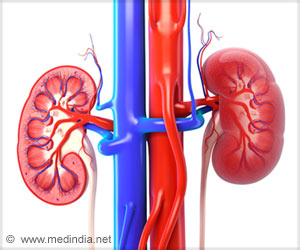Highlights
- The hormone insulin plays a vital role in reducing blood sugar level, by binding to its receptor on the cell surface.
- During this process, many other vital processes are shut down and in the long-term, the insulin receptor reduces life-expectancy.
- The protein called CHIP helps in disposing the insulin receptor by supplying it to the cellular breakdown and recycling systems and thereby unfurling anti-aging activity.
In the study by a team of researchers from the Universities of Cologne and Bonn, it has been shown that genetically altered laboratory animals in which the insulin receptor no longer functions actually live much longer than normal. They have identified the process by which the insulin receptor is normally kept in check in the cells and tissue.
Role of CHIP
A protein CHIP has been identified to play a crucial role in this process.
The role of CHIP is to act as a disposal helper. It supplies the insulin receptor to the cellular breakdown and recycling systems by affixing a "green dot" in the form of the molecule ubiquitin onto the receptor.
Premature Aging in the Absence of CHIP
When the investigators, recreated such degenerative illnesses in the nematode and in human cells, they observed that there was insufficient availability of CHIP for the break down the insulin receptor, which resulted in premature aging.
A major drawback of excess CHIP is that it recycles undamaged proteins, thereby weakening the organism.
The researchers hope that understanding mechanisms that control the breakdown of insulin receptor by CHIP, could help in identifying new treatments.v The findings are published in the Cell.
Reference
- Thorsten Hoppe et al. The Ubiquitin Ligase CHIP Integrates Proteostasis and Aging by Regulation of Insulin Receptor Turnover. Cell; (2017) DOI: 10.1016/j.cell.2017.04.003
Source-Medindia
















